'Funny, kind Semina lit up room': 12-year-old's tragic overdose death
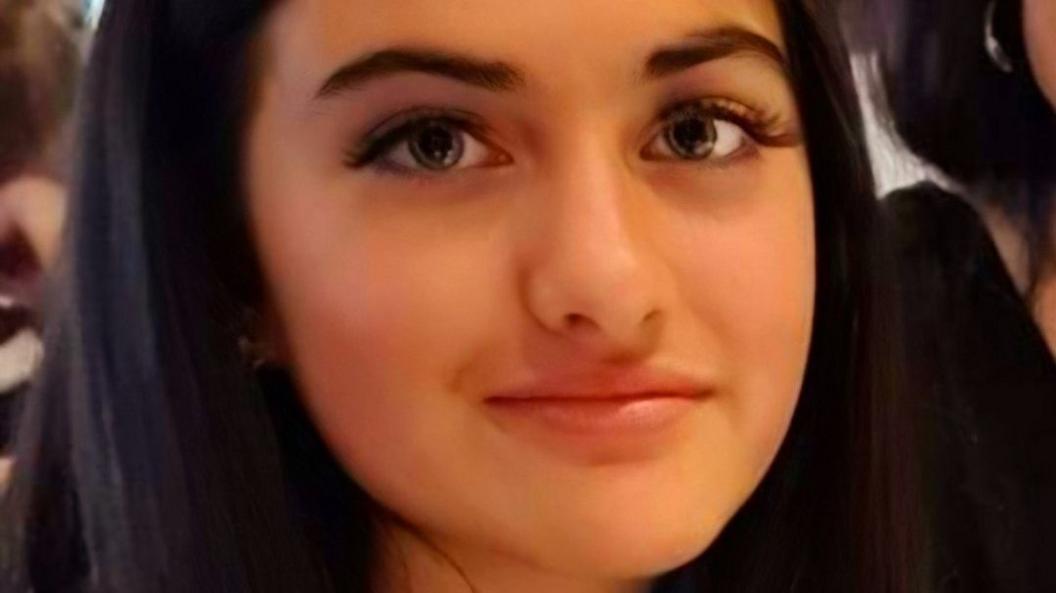
- Published
When 12-year-old Semina Halliwell was lying in hospital, she asked the consultant if she was going to die. Semina told him she had wanted "go to sleep for a couple of days".
She was placed in an induced coma but died soon after, on 12 June 2021.
Three days earlier, she had posted on social media: "I may laugh and smile every day but I'm in so much pain." The same day, she went to her bedroom and swallowed her mother's prescription medication.
An inquest, which concluded on Thursday, heard evidence about Semina's state of mind in the months leading up to her death.
"She went from being a bright and bubbly girl, to being depressed and withdrawn," Semina's mother, Rachel Halliwell, told the court. She spoke while clutching a portrait of her child and her daughter's favourite denim jacket.
On Thursday, coroner Johanna Thompson recorded a short narrative conclusion.
She said Semina had "a complex social history" and was "exceptionally vulnerable".
"Her death arose as a consequence of taking an overdose of her mother's prescription medication whilst in a state of distress and her intent at that time is unknown," she said.
Trolled to Death
The tragic story of how 12-year-old Semina Halliwell ended up taking her own life.
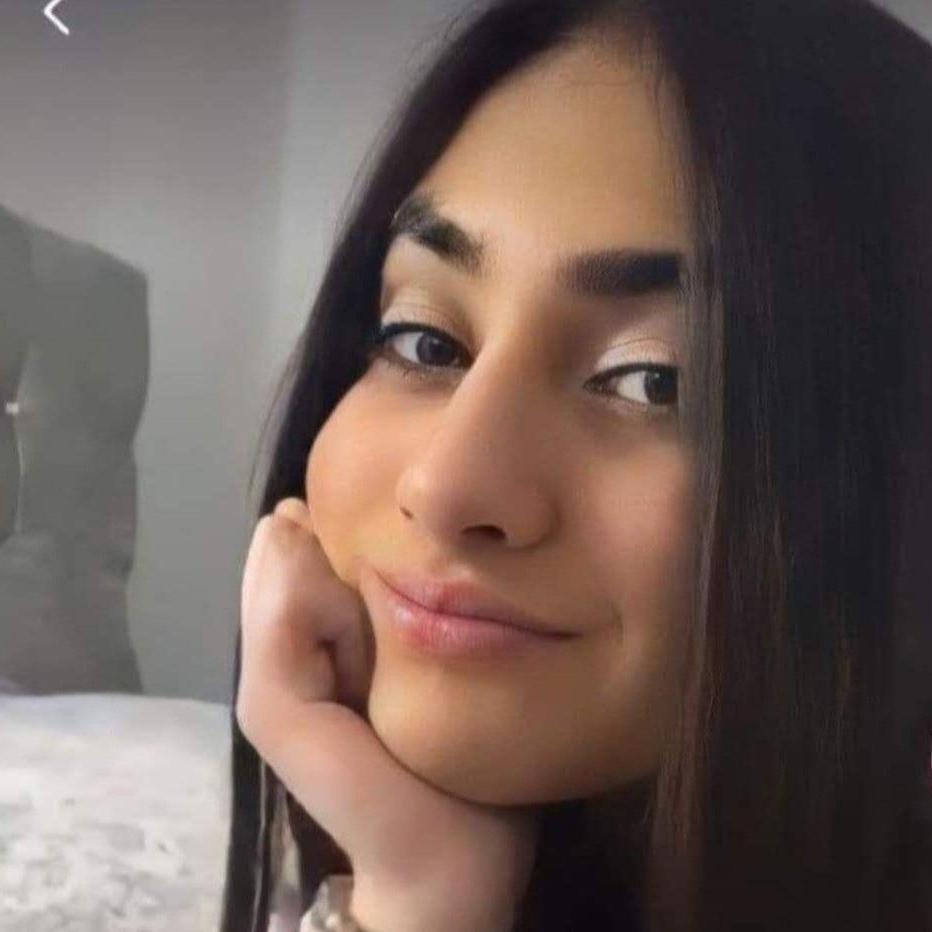
Semina loved to sing and dance, her mother Rachel says
Rachel says Semina was a quirky child who loved watching TV, taking ballet and tap dancing lessons. She'd had the same two best friends since she was four years old, she told the BBC.
"She spent all of her childhood singing and dancing on her phone," Rachel says. "She would pretend to be on a show where she was the host."
But within months, she says a chain of events began that culminated in Semina's tragic death.
During the summer of 2020, at the height of the Covid lockdown, an older boy began messaging her on Snapchat. Rachel believes he was grooming Semina.
Semina then started secondary school that September. After, the change in her were "very quick", Rachel says.
"We'd gone from watching Barbie cartoons to becoming very withdrawn and moody," she says.
Semina began self-harming and was diagnosed with autism spectrum disorder.
"Because her autism was sensory she struggled with clothes - the feel of them, the labels - she would go out in bare feet in the pouring rain and never feel the cold," her mum says.
Semina also began wearing tights and gloves to hide self-harming scars, and was making herself sick after eating.
The day before Mother's Day, in March 2021, Semina told her mum she had been sexually assaulted by an older boy in the woods a few months earlier. She said the older boy had been messaging her on Snapchat.
"She said she felt horrible, she hated herself, she felt dirty," Rachel says.
When Semina told her mother, Rachel encouraged her to tell Merseyside Police. But the family insist officers didn't support Semina appropriately.
They say the 12-year-old was told it would be a complicated case, that it could take 18 months to come to court, and that it could boil down to her word against the boy's.
They left it to Semina to decide whether she wanted to pursue a prosecution.
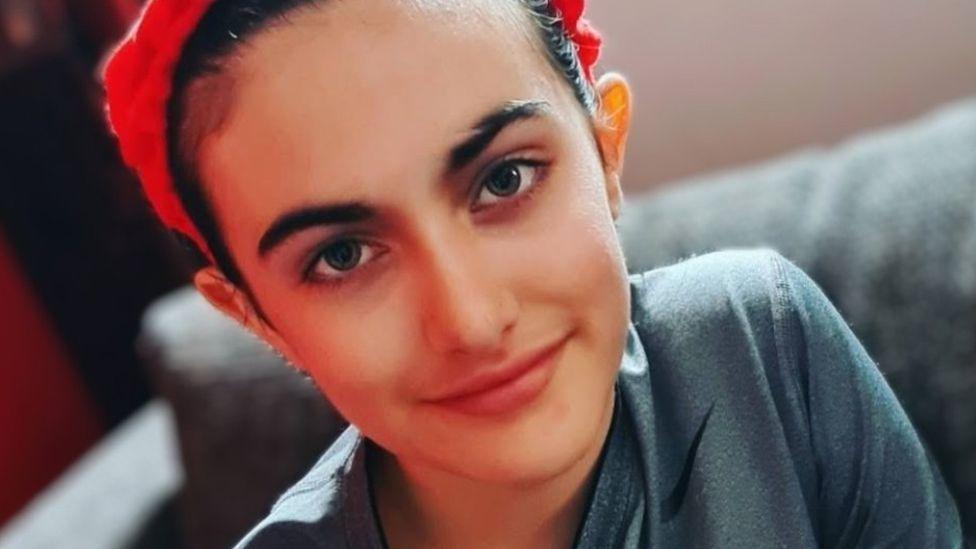
Semina was "incredibly vulnerable", the coroner found
The family has since made 13 complaints to Merseyside Police about its handling of the allegation of rape made by Semina, as well as the abuse they received, both online and from the local community.
The inquest concluded that none of the authorities who dealt with Semina could have prevented her death.
The coroner concluded from the evidence that Semina was "highly vulnerable" but she did not agree with submissions from the family that Merseyside Police, Semina's school, health trusts and Sefton Metropolitan Borough Council had breached their operational duties.
"The evidence has not revealed to me any indication that a real and immediate risk to Semina's life was known to any of the state agencies at any relevant point in time which would have made her death preventable," she said at the end of the inquest.
Merseyside Police reiterated the coroner's finding that there was no suggestion of any systemic breach on the part of the force and no evidence authorities could have prevented Semina's death.
A police spokesperson told the BBC: "We would like to express our thoughts and condolences to Semina's mum and family."
After her family reported the incident, a campaign of bullying against Semina began - including on Snapchat - the inquest heard.
She had sent a naked photograph of herself to the boy, which was circulated at school and online.
So too were videos of Semina being "jumped" and attacked from behind by groups of girls on multiple occasions.
"She went downhill, she couldn't cope," Rachel says. "The bullying was horrendous. 'The biggest slag in Year 7' - that's how she was referred to online."
"This case shows clear, systematic failures from Snapchat to proactively moderate its services," said Andy Burrows, chief executive of the Molly Rose Foundation, a charity set up after the death of Molly Russell.
"Just imagine the corrosive effect that that must have had on her well being and her mental health, to know that those videos were being shared, to know that you know every time that she was getting a ping on her phone that may well have been further abuse, further messages."
A spokesperson for Snapchat described the case as tragic, saying "our hearts go out to Semina's family". The firm works "in multiple ways to try to prevent and take action on this type of behaviour," they added.
"The only people that were helping her were myself and her mum, and we weren't qualified," Semina's aunt, Clare Halliwell, told the BBC. "We'd never experienced this before, and we were begging everybody who was qualified to help, and they weren't listening."
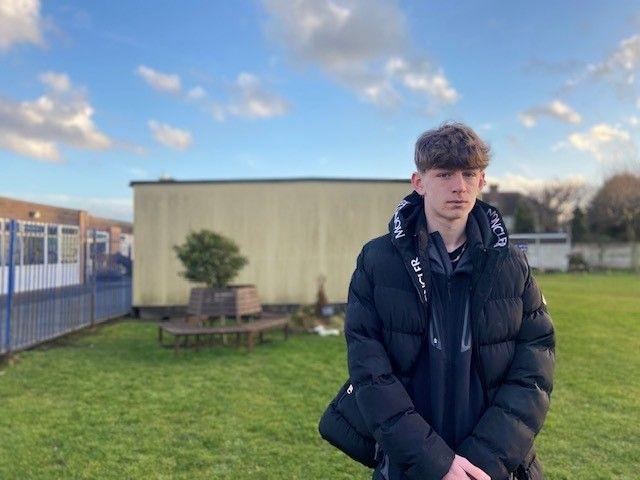
Lincoln O'Neill had been friends with Semina since they were four
Before her death, Semina's social media posts and WhatsApp messages became increasingly concerning. In posts read out in court, she said she had "no feeling" and felt "ruined as a person". "I am in such pain. I just want to be whole again," Semina wrote.
The night she took the overdose, police were visiting Semina's house. When she said she "had had enough", her mother assumed she meant she was fed up with the police being there and of the wider situation.
She poured a glass of juice and went upstairs to her bedroom, where she swallowed some of tablets from her mother's prescription medication.
The legacy of that day weighs heavily on her loved ones.
Semina and her best friend Lincoln O'Neill were "inseparable" from the age of four.
"She was amazing, she was funny, kind – she had a smile that could light up the whole room," he says, sitting in her memorial garden at the local Catholic primary school they both attended.
He too noticed a big change in Semina when they moved up to secondary school.
"We started noticing her self-harming and it was scary to see." He says she had confided in him about the alleged sexual assault.
"You could see it took an effect on her. She started hanging out with new groups of people." He feels now that she started "going down the wrong route".
In the aftermath of Semina's death, Lincoln has dropped out of school.
"It was just too much because every single day there were constant reminders that she's gone," he says.
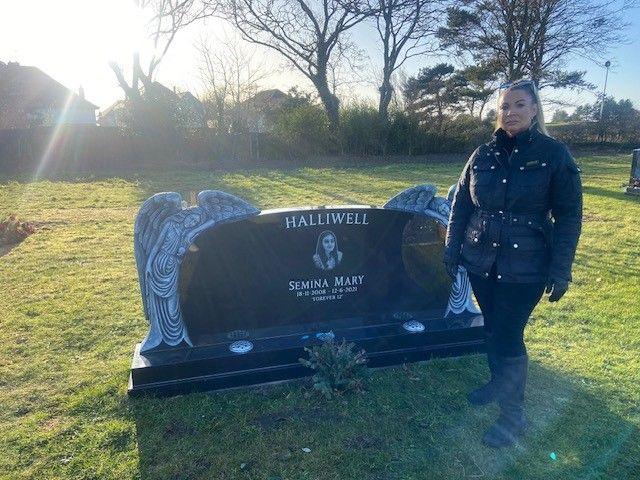
Semina's mother says she still finds it hard to believe her daughter has died
Rachel told the BBC that since Semina's death she has probably reported more than 100 incidents to police, including people threatening her other children, and kicking the door of their family home and shouting threats.
She says within an hour of her daughter's death, trolls were posting cruel and taunting messages about her online.
"It was endless," Rachel says. "They [the trolls] would put up pictures of a dead person in a coffin and add the name Semina." Rachel says somebody even offered a £10,000 reward online to anyone who would trash her daughter's grave.
"Somebody came to the grave to visit her, and when they got there, it was just covered in dog faeces, all over the grave," she says.
Today, Semina has a new black headstone engraved with a portrait of her wearing her favourite denim jacket. The inscription reads: "Semina Mary Halliwell. Forever 12."
Rachel told the BBC she wanted accountability for her daughter's death.
"Sometimes I don't think I've processed that she's gone," Rachel says. "She didn't need to die."
If you have been affected by any issues in this story, support is available at BBC Action Line